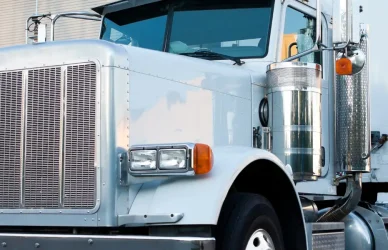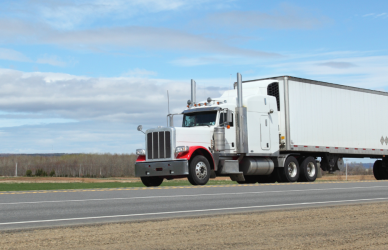As the world becomes increasingly aware of the environmental impact of various industries, the trucking industry is no exception. Truckers play a crucial role in transporting goods across vast distances, but their heavy reliance on fossil fuels has raised concerns about carbon emissions and pollution. However, with conscious efforts and eco-friendly practices, truckers can make a positive difference in reducing their environmental footprint. In this article, we will go over some practical and effective ways for truckers to practice eco-friendliness while on the road.
- Optimize Route Planning
Efficient route planning not only saves time and money but also reduces fuel consumption and emissions. By utilizing advanced GPS systems and route optimization software, truckers can identify the shortest and most fuel-efficient routes, avoiding congested areas and excessive idling. Additionally, planning routes in advance allows for better coordination of deliveries, leading to optimized logistics and reduced mileage.
- Maintain Regular Vehicle Maintenance
Regular vehicle maintenance is crucial for both safety and environmental reasons. Well-maintained trucks operate more efficiently, consume less fuel, and emit fewer pollutants. Truckers should follow the recommended maintenance schedules, including regular oil changes, tire rotations, and air filter replacements. Properly inflated tires can also improve fuel efficiency, as under-inflated tires increase rolling resistance.
- Embrace Fuel-Efficient Driving Techniques
Truckers can significantly reduce their carbon footprint by adopting fuel-efficient driving techniques. Some key practices include:
-
- Smooth Acceleration and Deceleration: Gradual acceleration and deceleration conserve fuel and reduce unnecessary emissions.
- Engine Idling Minimization: Avoid prolonged idling by turning off the engine during rest breaks and long waits. Use auxiliary power units (APUs) for necessary power, such as climate control and electronics.
- Speed Control: Adhering to speed limits not only enhances road safety but also improves fuel efficiency. Driving at moderate speeds reduces wind resistance and fuel consumption.
- Smart Cruise Control: Utilize adaptive cruise control systems to maintain safe distances between vehicles and automatically adjust speed, improving fuel efficiency.
- Explore Alternative Fuels and Technologies
The trucking industry is witnessing advancements in alternative fuels and technologies that reduce greenhouse gas emissions. Truckers can consider transitioning to cleaner fuels such as biodiesel, natural gas, or electric-powered trucks. While these options may require initial investments, they offer long-term environmental benefits and potential cost savings.
Truckers have a unique opportunity to contribute to environmental sustainability by adopting eco-friendly practices on the road. Above are just a few ways truckers can reduce carbon emissions and minimize their environmental impact. By implementing these practices, truckers not only support a cleaner and greener future but also improve their own operational efficiency and cost-effectiveness.











